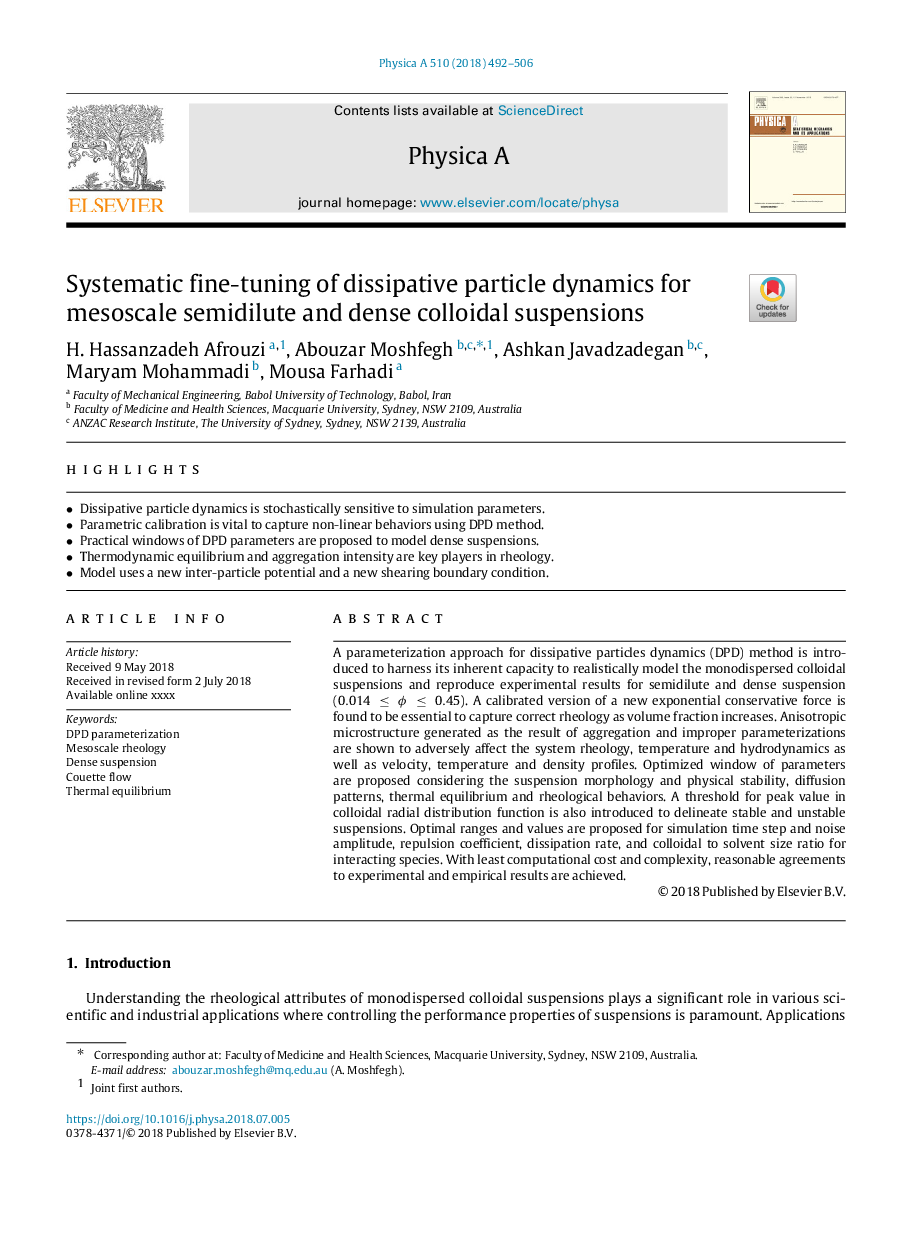| Article ID | Journal | Published Year | Pages | File Type |
|---|---|---|---|---|
| 7374639 | Physica A: Statistical Mechanics and its Applications | 2018 | 15 Pages |
Abstract
A parameterization approach for dissipative particles dynamics (DPD) method is introduced to harness its inherent capacity to realistically model the monodispersed colloidal suspensions and reproduce experimental results for semidilute and dense suspension (0.014â¤Ïâ¤0.45). A calibrated version of a new exponential conservative force is found to be essential to capture correct rheology as volume fraction increases. Anisotropic microstructure generated as the result of aggregation and improper parameterizations are shown to adversely affect the system rheology, temperature and hydrodynamics as well as velocity, temperature and density profiles. Optimized window of parameters are proposed considering the suspension morphology and physical stability, diffusion patterns, thermal equilibrium and rheological behaviors. A threshold for peak value in colloidal radial distribution function is also introduced to delineate stable and unstable suspensions. Optimal ranges and values are proposed for simulation time step and noise amplitude, repulsion coefficient, dissipation rate, and colloidal to solvent size ratio for interacting species. With least computational cost and complexity, reasonable agreements to experimental and empirical results are achieved.
Related Topics
Physical Sciences and Engineering
Mathematics
Mathematical Physics
Authors
H. Hassanzadeh Afrouzi, Abouzar Moshfegh, Ashkan Javadzadegan, Maryam Mohammadi, Mousa Farhadi,
